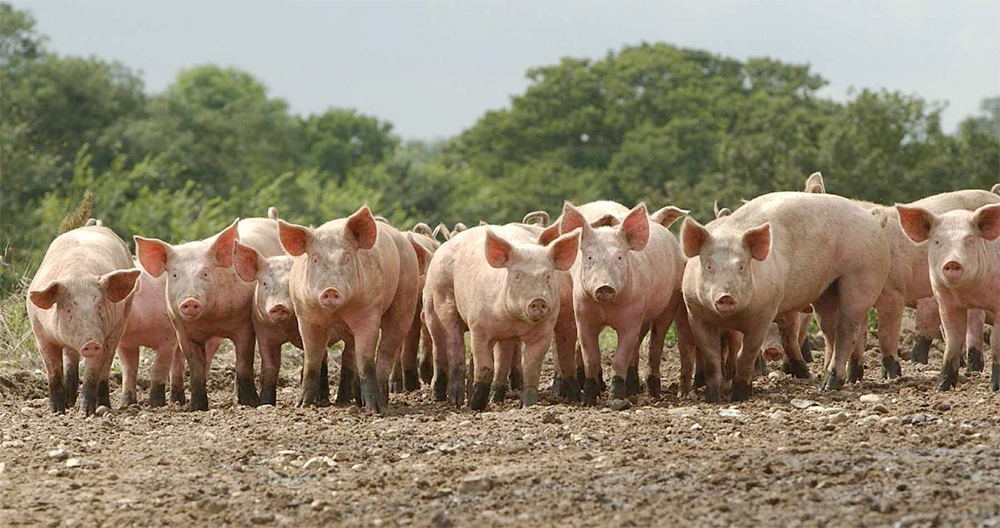Britain makes emergency call for 800 foreign butchers to avoid mass pig cull

Britain will offer six-month emergency visas to 800 foreign butchers to avoid a mass pig cull, it said on Thursday, after farmers complained that an exodus of workers from abattoirs and meat processors had left the pork sector fighting for survival
A combination of Brexit and COVID-19 has sparked an exodus of east European workers, leaving some 120,000 pigs in barns and fields across the country waiting to be slaughtered, according to the National Pig Association.
Environment Secretary George Eustice said the temporary visas would address the problem, which farmers said was putting livelihoods at risk and causing animal welfare issues.
“What we’re going to do is allow butchers in abattoirs and meat processors dealing with pigs, to be able to come in on a temporary basis under the Seasonal Worker scheme for up to six months,” Eustice told reporters.
“What we’re going to do is allow butchers in abattoirs and meat processors dealing with pigs, to be able to come in on a temporary basis under the Seasonal Worker scheme for up to six months“
“That will help us to deal with the backlog of pigs that we currently have on farms to give those meat processors the ability to slaughter more pigs.”
Eustice said around 800 butchers would be needed to clear the backlog and announced private storage aid to help abattoirs store meat.
But he said the government had decided not to ease the English language requirement for skilled visas to allow more butchers to come via that route — a key demand from farmers, who have been calling for weeks for ministers to take action.
“The industry had asked us to look at the language requirement on the skills route,” he said. “We have looked at that but we don’t think that provides an answer to their particular challenge. And that’s why we decided instead to have temporary visas.”
The lack of butchers is just one of a number of areas where Britain is facing acute labor shortages.
Last month, it announced plans to issue temporary visas for 5,000 foreign truck drivers and 5,500 poultry workers, but the government wants businesses to invest in a British workforce rather than rely on cheap foreign labor.
Ministers have also been keen to downplay suggestions that Britain’s exit from the European Union was the main issue hitting labor in the supply chains.
Many workers in the pig industry had gone home during the pandemic and simply not returned, Eustice said.
“It’s a complex picture: there have been lots of market disruptions, problems with access to the Chinese market, maybe some overproduction — here production is up by about seven per cent — and yes, labour has been an aggravating factor but it’s not been the only factor,” Eustice said.
“The pig industry, and in common with many parts of the food industry, has seen a loss of staff as many of the EU citizens that they relied on left during the pandemic – nothing to do with Brexit.”
As part of the measures to address the problem with the lack of lorry drivers, he said cabotage rules for EU drivers would be relaxed so that they could do as many trips as they liked over a two-week period.












